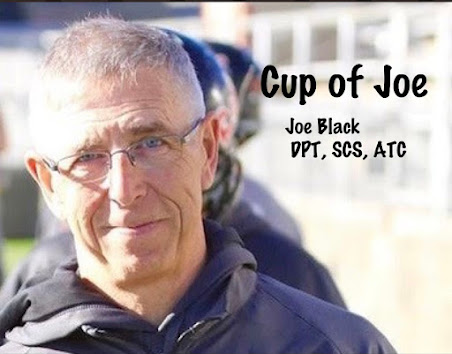I got stopped at a soccer match recently by a regular
reader, who commented on my recent column on Johannus Monday and asking how, as
a parent, she might teach mental toughness.
Wow! I guess I didn’t go there. I pointed out that it was an
essential ingredient to athletic success but I didn’t really put wheels on the
concept.
My elevator speech at that time was that as parents, we can
help our children gain mental toughness by supporting them, encouraging them,
and giving them opportunities. I also said that I planned to give it some
thought and to expect to see more in this space the next week.
Well, here it is. First, what is mental toughness? For
athletes, it’s the ability to move on after a failure. It’s self-confidence,
even (maybe especially) when challenged. It’s fighting through when you’re not
at your best. It’s making a mistake but
not letting that impact the next play, the next shot.
That’s what I was talking about when I was talking about
working with our kickers. You miss one, you forget about it. You move on.
You’ve got to have self-confidence. I’ve used the phrase
“quiet arrogance” in the past. I think most great athletes have that. I don’t
think any of us really care for over-the-top arrogance. But we have to have
confidence in ourselves, otherwise that last mistake impacts the next
opportunity.
I can remember watching my daughter play volleyball back a
few years ago. I could always tell during warmups if she was ready to play. She
had this sort of “swagger” that I could see a mile away. It meant that she was
ready.
It didn’t involve words and she certainly didn’t do anything
to disrespect her opponents, but at that point she knew what she was capable of
doing and ready to go do it.
OK, so how do you get that? How do you develop mental
toughness?
First, you practice. And then you practice more. You
practice to the point that you know what you’re capable of doing. You shoot a
thousand free throws. You hit a ton of ground strokes. You spend your spare
time at the driving range.
You become so good at a skill that you can always count on
it during crunch time. You want to be the one to take the last shot because
you’ve done it a million times.
You challenge yourself. You play better opponents. You step
out of your comfort zone. You put yourself in situations where you are truly
challenged. You challenge yourself with difficult and uncomfortable situations.
You never, ever make excuses. You don’t complain about the
officials. You don’t whine that the sun was in your eyes. You own your mistakes
and forgive the mistakes of others.
You build your support system. You find people that tell you
what you’re doing wrong but who also believe in you. My tennis grandson and I
meet after every match and first chat about all the good things that he’s done.
Then, I will ask him what he did wrong. He knows. And then we talk about how to
fix that.
I’m reminded about the 7 “C’s” of mental toughness:
Competitiveness, courage, confidence, control, composure, consistency, and
commitment.
You stay positive, never letting mistakes impact your game.
You stay motivated and committed. And you never, ever give up.






